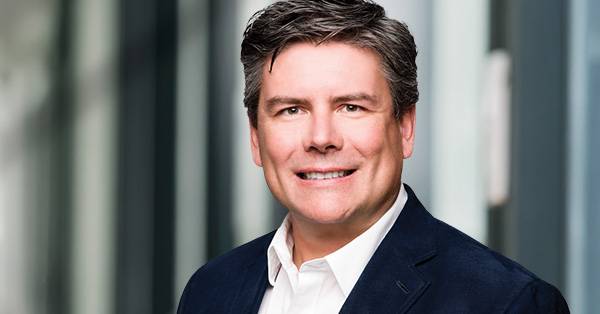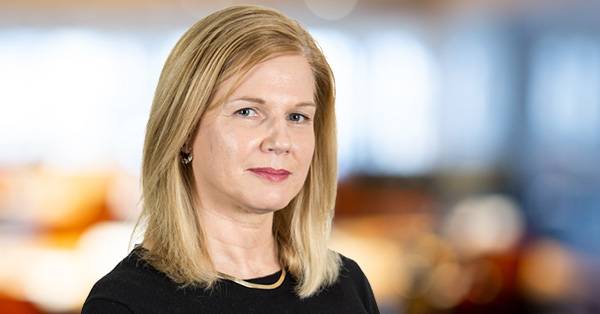- Solutions
- Solutions
- Home Health
- Hospice
- Life Plan Community
- Palliative Care
- Private Duty
- Senior Living
- Skilled Nursing
- Skilled Nursing
- Skilled Nursing Software
- Advanced Insights
- Customer relationship management
- Data and analytics
- Financial & operations management
- Marketing
- Nutrition management
- Referral management
- Regulatory compliance
- Retail management
- Resident engagement
- Revenue cycle management
- Skilled nursing interoperability
- Partners
- Blogs
- Resources
- About
- User Conference

MatrixCare Voice: Your AI questions answered [webinar recap]
Our recent webinar, Clinicians and AI: Leveraging technology to unlock clinical capacity, explored our innovative new collaboration with Tallio: MatrixCare Voice. Together, we’re empowering clinicians to help significantly reduce their documentation time while improving both efficiency and quality of care — all through AI-powered voice technology.
Matt Challberg, CEO at Tallio, and Luca Ventura, CTO at Tallio, discuss Tallio’s unique approach to AI that aims to unlock clinical capacity and augment clinicians (without replacing clinical decision-making). By transforming voice audio into structured clinical documentation — using advanced AI that continuously learns and adapts over time — home health and hospice organizations can now help reduce manual documentation, document easily at the point-of-care, and automate narrative-based notes.
Webinar attendees left with a solid understanding of how MatrixCare Voice can help improve the quality and speed of documentation over time, allowing clinicians to focus on providing excellent patient care.
Key takeaways from the AI webinar
- Clinicians can speak much more naturally and have a conversation with their phone as if they are just debriefing about a visit with peers.
- Clinicians don’t have to worry about capturing the nuances or speak in a very specific way.
- Helps improve grammar (such as removing “um” or “uh”).
- Helps improve the understanding of the context for accents or English as a second language.
Answers to your MatrixCare Voice questions
Q: Technology built to help clinicians often puts more work on the back office. Is this technology (finally) the answer?
Absolutely, we’re just scratching the surface with what’s possible, and we’re already seeing a tremendous impact on clinicians. This impact will only accelerate and grow in the coming years.
Q: What is Tallio doing to stay ahead of AI?
AI is moving at a rapid pace and there is a lot of hype around what’s possible. Unfortunately, much of that hype fails to live up to expectations, so we focus on weeding through the noise and finding what works to solve real-world problems for clinicians.
Q: Can it listen in on the patient visit and capture key data points to complete the note?
Yes, ambient listening has done wonders on the acute side of healthcare and we believe that aspects of it will play a significant role in post-acute care as well. But while recording entire conversations can bring irrelevant data to the note, recording certain aspects of a patient visit can bring many benefits.
Q: Is there a difference between Talent Assist and DocZero?
When we started the business, one of our core products was really understanding retention and why clinicians were leaving. This is where we uncovered the burden of administration and clinical documentation.
Talent Assist was a product that helped us achieve this understanding and ultimately drove us to build out our flagship product, which is DocZero.
Our development resources and energy are going into addressing the administrative burden that is put on clinicians so we can alleviate that as much as possible. DocZero is a newer application that we launched as a rebrand for that. If you look in the app store, that’s where you’d find anything related to it.
Q: Have you had any issues with Medicare compliance or audits of charts with AI-generated documentation?
We help (a) ensure clinical decision-making is left with a clinician, not with an AI system, and (b) make sure from a compliance standpoint that we avoid generating data that is not clinician-generated.
The documentation that our system is producing is the clinician’s data, so they can review it as their own. It’s not creating any synthetic information, but instead only extracting information from what the clinician has said and it’s verified by that clinician as well.
When we think of generative AI, we think of creating an email to send to somebody or creating a blog post, but we’re not creating documentation from scratch. It’s just taking what the clinician is stating and formatting it into the appropriate situation that needs to be documented with only real data.
Want to hear more? Get a webinar replay here.
Let us show you more of our innovative tools built to enhance the clinician experience.
Nick Knowlton
Nick Knowlton is the Vice President of Strategic Initiatives for ResMed, parent company of Brightree and MatrixCare. He leads the company’s interoperability initiatives, amongst other areas. Nick brings more than 20 years of business experience across sales, marketing, product and strategy roles for technology and health information technology businesses. Prior to joining the ResMed family of brands, Nick ran strategic initiatives for Greenway Health, a market leader in the physician practice EHR space.
Nick is extremely active in the post-acute industry -- he is the chair of the board of directors of CommonWell Health Alliance and is on the board of HCTAA and PDHCA, which are affiliates of NAHC.
Nick has a Bachelor of Science degree with a major in Biochemistry from the University of Notre Dame.
Related Posts


See MatrixCare in action
Start by having a call with one of our experts to see our platform in action.
MatrixCare offers industry-leading software solutions. Thousands of facility-based and home-based care organizations trust us to help them improve efficiency and provide exceptional care.
© 2025 MatrixCare is a registered trademark of MatrixCare. All rights reserved.






